MARKETING
12 Niche Marketplaces to List Your B2B Services
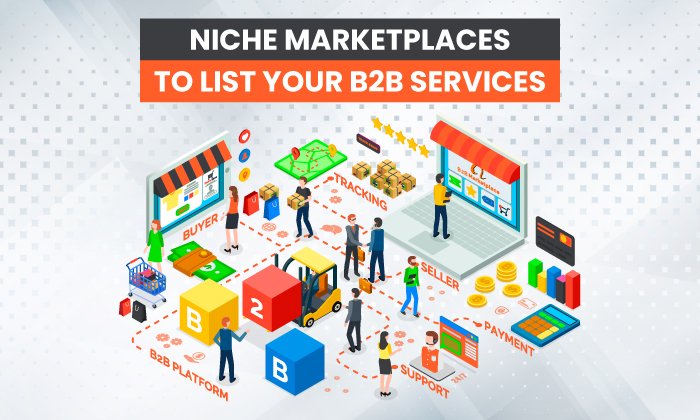
E-commerce is the future, but it isn’t just for B2C.
B2B brands are finding huge success in the digital marketplace industry and everyone wants a piece of the pie.
Globally, B2B marketplaces make up a $31 billion market.
Amazon Business, arguably the biggest player in the B2B marketplace scene, grew from $1 billion to $10 billion in sales in only three years.
While competition is intense in the mainstream, niche B2B marketplaces are showing real promise.
Niche marketplaces are unique marketplaces for businesses that want to sell their products and services. These marketplaces can be niche in terms of the industry, region, or size of business.
For B2B marketers looking to carve out spots in the B2B marketplace world, niche marketplaces offer ways to speak to new customers.
In this blog, we’ll explore some of the best niche marketplaces for B2B brands and share insights into how you can increase conversions on these platforms.
What Are the Benefits of B2B Niche Marketplaces?
Niche B2B marketplaces allow you to speak directly to your niche, which saves time and resources in your sales process. They also open you up to new audiences, improve your data capabilities, and more.
Not to mention, being present in a single platform full of other businesses just like you opens up a lot of room for innovation and growth.
Here are a few benefits of niche marketplaces B2B.
Speak to More Customers
It can be easy for many to think of Millennials as “kids,” but the youngest were born in the mid-90’s—meaning 100 percent of Millennials are adults. Because of this, studies from Google have found B2B buyers are increasingly of that generation. This is changing the B2B business sales process completely.
Thankfully, B2B legacy brands can easily reach the Millennial market without completely revamping their sales strategies. They just have to know where to find them.
Plus, by listing your business on a niche B2B marketplace, you can speak to more qualified buyers at a regional or global level, depending on the marketplace.
Cater to Niche Audiences
In niche B2B marketplaces, the people you’re talking to are already working within your niche, making them more likely to be qualified and interested from the start.
Being part of a niche marketplace puts you in front of people who already know and want your products, cutting down your sales cycle and improving revenue streams.
Streamlined Processes
Niche B2B marketplaces also offer streamlined processes for businesses that use them.
Unnecessary costs, such as having separate portals for suppliers, customers, and leads, are eliminated in the niche B2B marketplaces.
In short, time-consuming sales processes can be avoided.
Data Capabilities
In addition, e-commerce capabilities open up new ways of collecting, managing, and utilizing data.
In a B2B marketplace, you can easily see stock movements, cash flow, customer engagement, and even spending patterns.
All this data can be used to better inform your marketing efforts and improve your customer acquisition process.
Increase Conversions and Revenue
Many niche marketplaces offer additional features such as lead generation tools you can use to help boost sales conversions, ultimately increasing revenue for your business.
Listing your products or services on a global channel has the potential to double your sales possibilities, too.
Bulk Pricing
Listing your products, services, and equipment on B2B niche marketplaces allows you and your customers to benefit from bulk pricing.
On the business side, you can sell more products more efficiently. Meanwhile, customers save money by buying in bulk. Everyone wins.
Build Better Client Relationships
Niche B2B marketplaces connect you to suppliers and manufacturers across the globe.
By increasing the scope of your business, you have the chance to build strong client relationships around the world.
Plus, the efficiency and simplicity that niche B2B marketplaces bring could make your clients happy. The less time they spend going through complicated supply processes, the better they will feel about working with you.
12 Top Niche Marketplaces B2B
Ready to take your business into the niche B2B marketplace? Below are 12 of the top niche marketplaces you can list your business on today.
1. Flexport – Freight Forwarding
Flexport helps global trade partners simplify their supply chains through a digital platform.
The system works best for businesses involved in global trade that need to manage large inventory quantities worldwide.
By putting all shipment tracking, collaboration, insights, analytics, and inventory knowledge onto a simple digital tool, Flexport helps businesses take control of their supply chains.
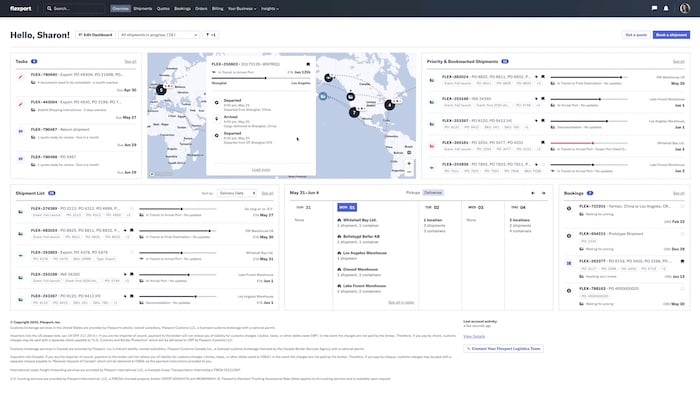
2. uShip – Shipping
uShip helps customers ship large items by connecting them with carriers with extra truck space.
This simple transport marketplace connects shippers with thousands of qualified transporters so items can get to their destination more effectively.
uShip is an excellent niche B2B marketplace for businesses who need to ship large items, such as cars, machinery, freight, and household items.
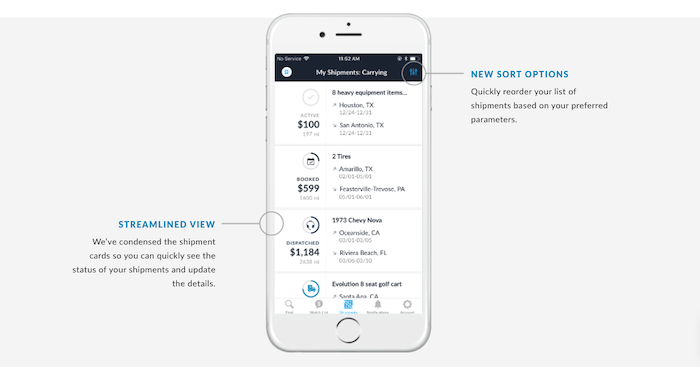
3. Kitmondo – Machinery
Kitmondo allows brands to buy and sell used machinery online.
With over 8,000 sellers worldwide, Kitmondo is the place for businesses to buy and sell machinery without taking a significant loss.
Kitmondo features a range of machinery types, from broadcast and film equipment to construction and mining tools.
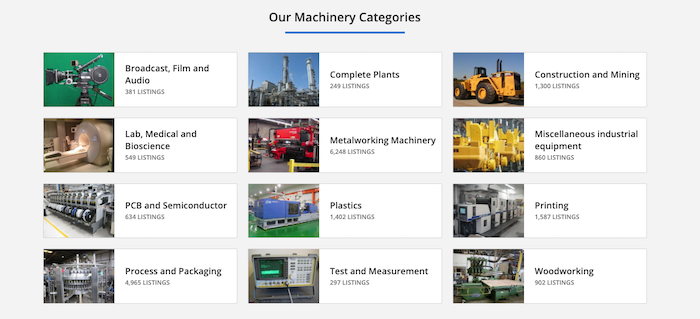
4. Alibaba – Wholesale & Distributors
Alibaba is the leading e-commerce platform helping SMEs go global.
Alibaba allows merchants to set up a custom e-commerce storefront that sells products across the globe.
This niche B2B marketplace also offers advertising tools, data and analytics, and customer support, so your business is always set up for growth.
This marketplace is perfect for wholesale brands looking to open up their product sales and get competitive on a global market.
According to Statista, 36.5 percent of corporate buyers report using Alibaba.
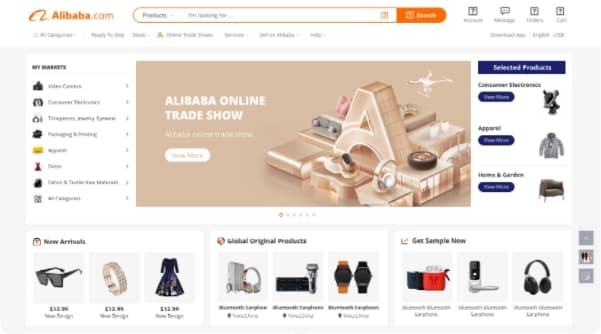
5. Mable – Food & Beverage
Mable is a wholesale platform specializing in food and beverage.
Founded by a grocer, Mable focuses on local, emerging brands committed to health and wellness.
Independent grocery stores, farmers, and makers can all find their stride on Mable’s easy-to-use niche B2B marketplace platform.
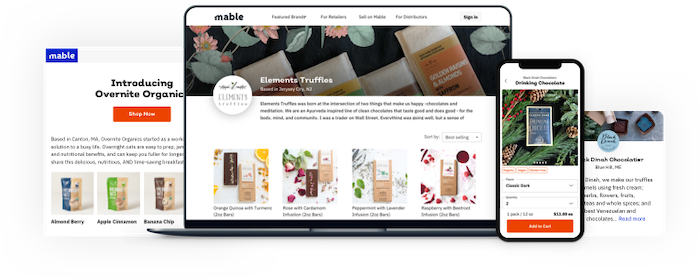
6. Mediatask – Architecture
Mediatask is a niche B2B marketplace for drafters and architects.
They create customized visuals for real estate businesses in both 2D and 3D models.
Mediatask uses technology automation to increase the capacity of their team. Through this, they have found unmatched scalability that benefits B2B brands.
If you’re a real estate developer or architect, it’s worth checking these guys out.
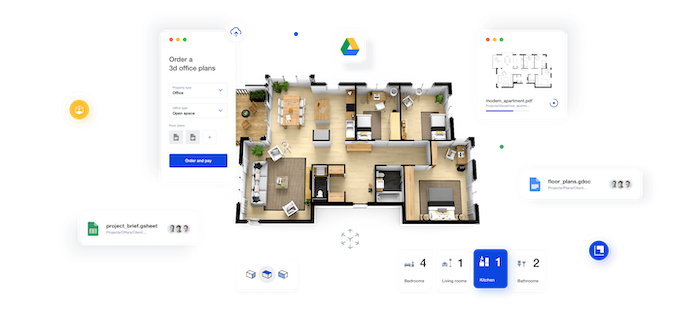
7. BuildingConnected – Construction
BuildingConnected is a real-time construction network that helps builders and owners streamline bid tasks and risk management processes.
Their centralized software makes it easy for construction networks to invite subcontractors, manage proposals, and even award bids.
BuildingConnected is a great choice for anyone involved in preconstruction or construction industries.
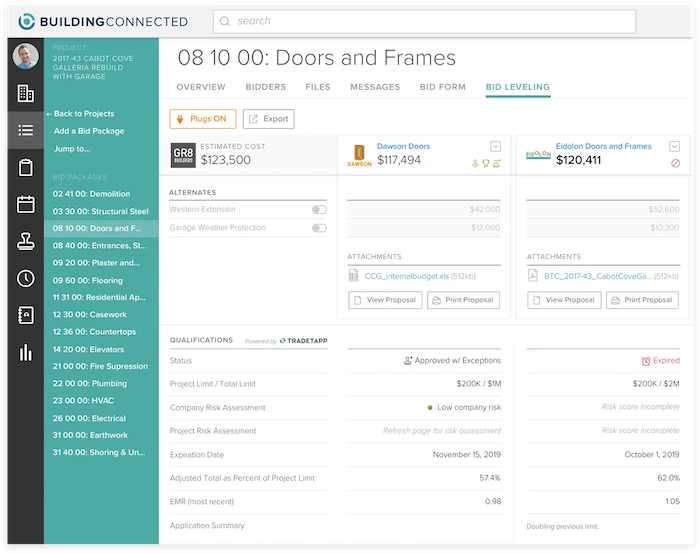
8. Clora – Science & Medicine
Clora is a staffing platform for those in the pharmaceutical, biotechnology, and medical device industries.
Their simple platform allows job seekers and consultants to be matched with the right opportunities or staff.
This niche marketplace B2B is the perfect example of a technology solution for a complex industry.
With Clora, scientists and researchers can easily be matched with qualified work and companies, helping drive innovation across the country.
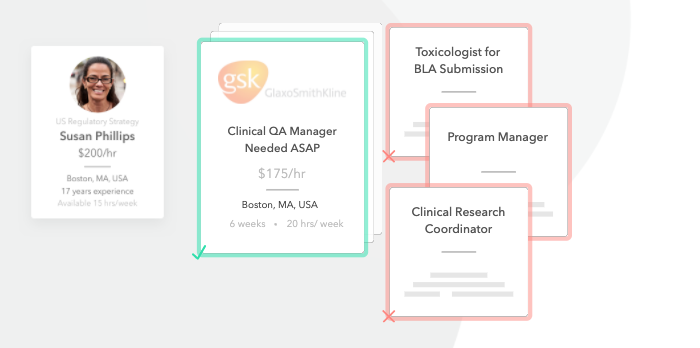
9. Globality – Sourcing
Globality allows businesses to source global services within a simple and convenient platform.
Globality uses an AI-powered platform to automate and eliminate the traditional request for proposal (RFP) process.
Now, businesses can quickly scope, manage, and negotiate projects within one simple tool.
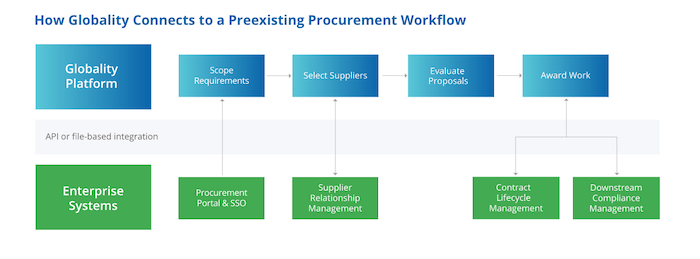
10. Arrow – Technology
Arrow is the leading manufacturer of electronic technology for use in the home, business, and daily life.
They facilitate purchasing online and are present in more than 300 locations worldwide.
With Arrow, global manufacturers can sell technology products in a streamlined and effective manner.
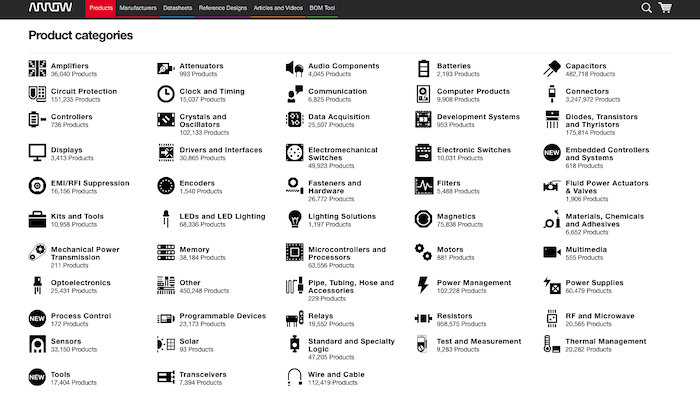
11. ePlane – Aerospace
ePlane is an aerospace marketplace that allows users to trade and repair aerospace parts.
Their platform features millions of parts in a real-time database that is available through merchants across the globe.
With ePlane, aerospace professionals can reduce costs, track activity, access insightful data, and save time in their inventory procurement.
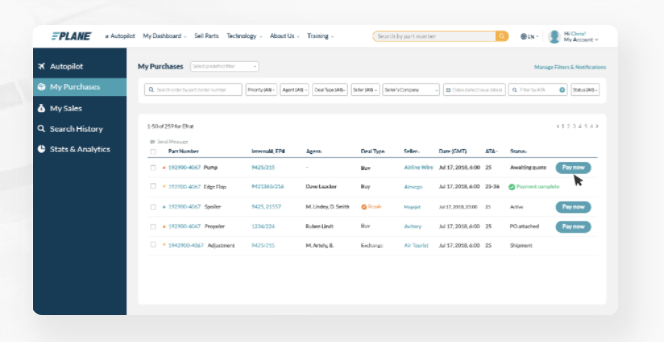
12. SupplyHog – Hardware & Building
SupplyHog is a niche B2B marketplace that allows local and nationwide partners to buy hardware and building supplies.
Merchants can list various products, from plumbing equipment to housewares, and easily sell products across the United States.
By generating quick e-commerce sales from products they already have, B2B businesses can expand their local markets and increase conversions on the whole.
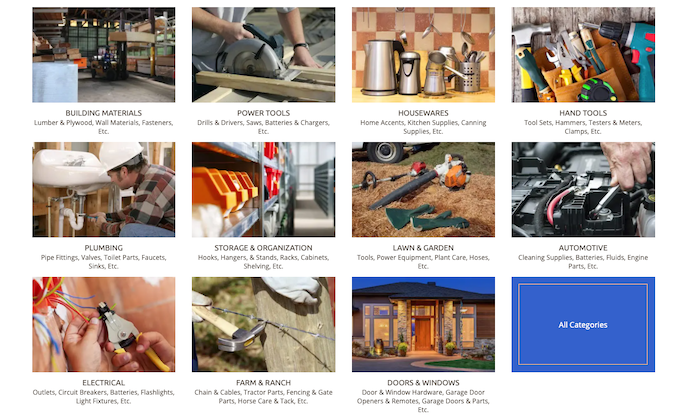
B2B Niche Marketplaces Frequently Asked Questions (WP EDITOR: ADD SCHEMA)
What Is the Difference Between B2B and B2C Niche Marketplaces?
B2B niche marketplaces work between businesses, while B2C works between businesses and consumers.
How Do I Find a B2B Marketplace in My Niche?
There are so many niche B2B marketplaces out there; you just need to do your research. Start by simply Googling your industry and seeing where your competitors list their wares.
What Are the Advantages of using B2B Marketplaces?
Niche B2B marketplaces attract niche suppliers from around the world.
What Niche B2B Marketplace Should I Use?
The niche B2B marketplace you use depends on your business and the suppliers or leads you want to attract.
Who Should Use a Niche B2B Marketplace?
Any business that operates within a niche can benefit from connecting to more like-minded businesses.
B2B Niche Marketplaces: Conclusion
Getting involved in a niche marketplace for B2B businesses can be a great way to expand your business across the globe.
Niche B2B marketplaces also offer enhanced data and analytics tracking, plus streamlined services for those involved.
If you’ve ever thought to yourself, “I wish this was easier,” it’s worth looking around to see if anyone has created a tool to alleviate your problem.
What is your favorite niche B2B marketplace?
See How My Agency Can Drive Massive Amounts of Traffic to Your Website
- SEO – unlock massive amounts of SEO traffic. See real results.
- Content Marketing – our team creates epic content that will get shared, get links, and attract traffic.
- Paid Media – effective paid strategies with clear ROI.
MARKETING
Tinuiti Marketing Analytics Recognized by Forrester

Rapid Media Mix Modeling and Proprietary Tech Transform Brand Performance
Tinuiti, the largest independent full-funnel performance marketing agency, has been included in a recent Forrester Research report titled, “The Marketing Analytics Landscape, Q2 2024.” This report comprehensively overviews marketing analytics markets, use cases, and capabilities. B2C marketing leaders can use this research by Principal Analyst Tina Moffett to understand the intersection of marketing analytics capabilities and use cases to determine the vendor or service provider best positioned for their analytics and insights needs. Moffett describes the top marketing analytics markets as advertising agencies, marketing dashboards and business intelligence tools, marketing measurement and optimization platforms and service providers, and media analytics tools.
As an advertising agency, we believe Tinuiti is uniquely positioned to manage advertising campaigns for brands including buying, targeting, and measurement. Our proprietary measurement technology, Bliss Point by Tinuiti, allows us to measure the optimal level of investment to maximize impact and efficiency. According to the Forrester report, “only 30% of B2C marketing decision-makers say their organization uses marketing or media mix modeling (MMM),” so having a partner that knows, embraces, and utilizes MMM is important. As Tina astutely explains, data-driven agencies have amplified their marketing analytics competencies with data science expertise; and proprietary tools; and tailored their marketing analytics techniques based on industry, business, and data challenges.
Our Rapid Media Mix Modeling sets a new standard in the market with its exceptional speed, precision, and transparency. Our patented tech includes Rapid Media Mix Modeling, Always-on Incrementality, Brand Equity, Creative Insights, and Forecasting – it will get you to your Marketing Bliss Point in each channel, across your entire media mix, and your overall brand performance.
As a marketing leader you may ask yourself:
- How much of our marketing budget should we allocate to driving store traffic versus e-commerce traffic?
- How should we allocate our budget by channel to generate the most traffic and revenue possible?
- How many customers did we acquire in a specific region with our media spend?
- What is the impact of seasonality on our media mix?
- How should we adjust our budget accordingly?
- What is the optimal marketing channel mix to maximize brand awareness?
These are just a few of the questions that Bliss Point by Tinuiti can help you answer.
Learn more about our customer-obsessed, product-enabled, and fully integrated approach and how we’ve helped fuel full-funnel outcomes for the world’s most digital-forward brands like Poppi & Toms.
The Landscape report is available online to Forrester customers or for purchase here.
MARKETING
Ecommerce evolution: Blurring the lines between B2B and B2C
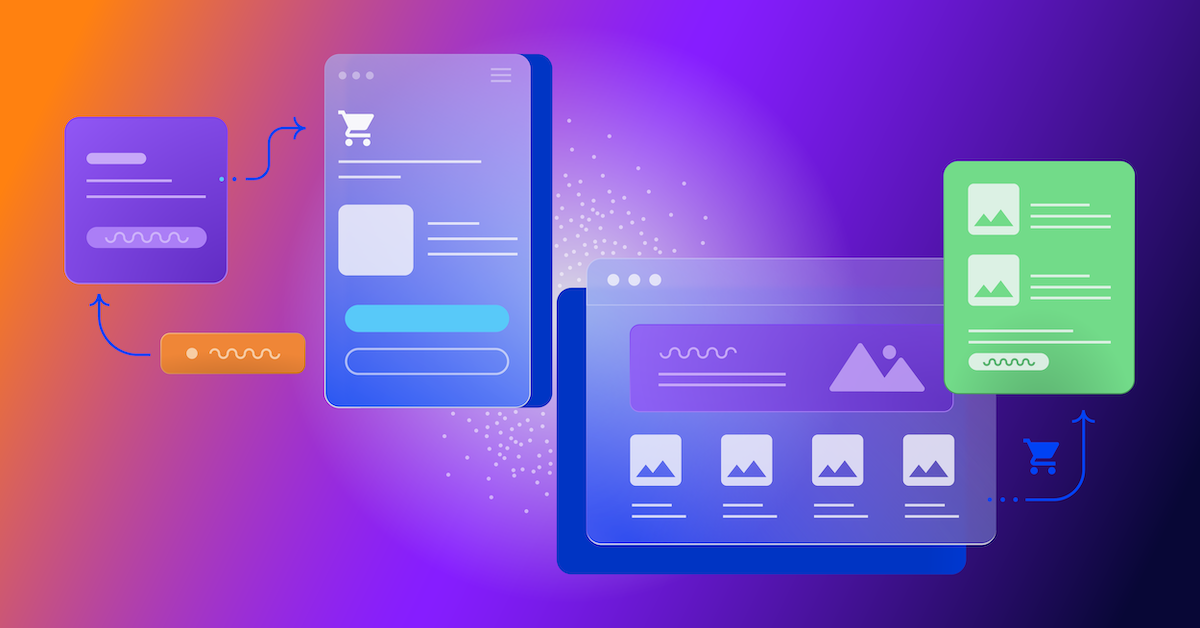
Understanding convergence
B2B and B2C ecommerce are two distinct models of online selling. B2B ecommerce is between businesses, such as wholesalers, distributors, and manufacturers. B2C ecommerce refers to transactions between businesses like retailers and consumer brands, directly to individual shoppers.
However, in recent years, the boundaries between these two models have started to fade. This is known as the convergence between B2B and B2C ecommerce and how they are becoming more similar and integrated.
Source: White Paper: The evolution of the B2B Consumer Buyer (ClientPoint, Jan 2024)
What’s driving this change?
Ever increasing customer expectations
Customers today expect the same level of convenience, speed, and personalization in their B2B transactions as they do in their B2C interactions. B2B buyers are increasingly influenced by their B2C experiences. They want research, compare, and purchase products online, seamlessly transitioning between devices and channels. They also prefer to research and purchase online, using multiple devices and channels.
Forrester, 68% of buyers prefer to research on their own, online . Customers today expect the same level of convenience, speed, and personalization in their B2B transactions as they do in their B2C interactions. B2B buyers are increasingly influenced by their B2C experiences. They want research, compare, and purchase products online, seamlessly transitioning between devices and channels. They also prefer to research and purchase online, using multiple devices and channels
Technology and omnichannel strategies
Technology enables B2B and B2C ecommerce platforms to offer more features and functionalities, such as mobile optimization, chatbots, AI, and augmented reality. Omnichannel strategies allow B2B and B2C ecommerce businesses to provide a seamless and consistent customer experience across different touchpoints, such as websites, social media, email, and physical stores.
However, with every great leap forward comes its own set of challenges. The convergence of B2B and B2C markets means increased competition. Businesses now not only have to compete with their traditional rivals, but also with new entrants and disruptors from different sectors. For example, Amazon Business, a B2B ecommerce platform, has become a major threat to many B2B ecommerce businesses, as it offers a wide range of products, low prices, and fast delivery
“Amazon Business has proven that B2B ecommerce can leverage popular B2C-like functionality” argues Joe Albrecht, CEO / Managing Partner, Xngage. . With features like Subscribe-and-Save (auto-replenishment), one-click buying, and curated assortments by job role or work location, they make it easy for B2B buyers to go to their website and never leave. Plus, with exceptional customer service and promotional incentives like Amazon Business Prime Days, they have created a reinforcing loyalty loop.
And yet, according to Barron’s, Amazon Business is only expected to capture 1.5% of the $5.7 Trillion addressable business market by 2025. If other B2B companies can truly become digital-first organizations, they can compete and win in this fragmented space, too.”
If other B2B companies can truly become digital-first organizations, they can also compete and win in this fragmented space
Joe AlbrechtCEO/Managing Partner, XNGAGE
Increasing complexity
Another challenge is the increased complexity and cost of managing a converging ecommerce business. Businesses have to deal with different customer segments, requirements, and expectations, which may require different strategies, processes, and systems. For instance, B2B ecommerce businesses may have to handle more complex transactions, such as bulk orders, contract negotiations, and invoicing, while B2C ecommerce businesses may have to handle more customer service, returns, and loyalty programs. Moreover, B2B and B2C ecommerce businesses must invest in technology and infrastructure to support their convergence efforts, which may increase their operational and maintenance costs.
How to win
Here are a few ways companies can get ahead of the game:
Adopt B2C-like features in B2B platforms
User-friendly design, easy navigation, product reviews, personalization, recommendations, and ratings can help B2B ecommerce businesses to attract and retain more customers, as well as to increase their conversion and retention rates.
According to McKinsey, ecommerce businesses that offer B2C-like features like personalization can increase their revenues by 15% and reduce their costs by 20%. You can do this through personalization of your website with tools like Product Recommendations that help suggest related products to increase sales.
Focus on personalization and customer experience
B2B and B2C ecommerce businesses need to understand their customers’ needs, preferences, and behaviors, and tailor their offerings and interactions accordingly. Personalization and customer experience can help B2B and B2C ecommerce businesses to increase customer satisfaction, loyalty, and advocacy, as well as to improve their brand reputation and competitive advantage. According to a Salesforce report, 88% of customers say that the experience a company provides is as important as its products or services.
Market based on customer insights
Data and analytics can help B2B and B2C ecommerce businesses to gain insights into their customers, markets, competitors, and performance, and to optimize their strategies and operations accordingly. Data and analytics can also help B2B and B2C ecommerce businesses to identify new opportunities, trends, and innovations, and to anticipate and respond to customer needs and expectations. According to McKinsey, data-driven organizations are 23 times more likely to acquire customers, six times more likely to retain customers, and 19 times more likely to be profitable.
What’s next?
The convergence of B2B and B2C ecommerce is not a temporary phenomenon, but a long-term trend that will continue to shape the future of ecommerce. According to Statista, the global B2B ecommerce market is expected to reach $20.9 trillion by 2027, surpassing the B2C ecommerce market, which is expected to reach $10.5 trillion by 2027. Moreover, the report predicts that the convergence of B2B and B2C ecommerce will create new business models, such as B2B2C, B2A (business to anyone), and C2B (consumer to business).
Therefore, B2B and B2C ecommerce businesses need to prepare for the converging ecommerce landscape and take advantage of the opportunities and challenges it presents. Here are some recommendations for B2B and B2C ecommerce businesses to navigate the converging landscape:
- Conduct a thorough analysis of your customers, competitors, and market, and identify the gaps and opportunities for convergence.
- Develop a clear vision and strategy for convergence, and align your goals, objectives, and metrics with it.
- Invest in technology and infrastructure that can support your convergence efforts, such as cloud, mobile, AI, and omnichannel platforms.
- Implement B2C-like features in your B2B platforms, and vice versa, to enhance your customer experience and satisfaction.
- Personalize your offerings and interactions with your customers, and provide them with relevant and valuable content and solutions.
- Leverage data and analytics to optimize your performance and decision making, and to innovate and differentiate your business.
- Collaborate and partner with other B2B and B2C ecommerce businesses, as well as with other stakeholders, such as suppliers, distributors, and customers, to create value and synergy.
- Monitor and evaluate your convergence efforts, and adapt and improve them as needed.
By following these recommendations, B2B and B2C ecommerce businesses can bridge the gap between their models and create a more integrated and seamless ecommerce experience for their customers and themselves.
MARKETING
Streamlining Processes for Increased Efficiency and Results

How can businesses succeed nowadays when technology rules? With competition getting tougher and customers changing their preferences often, it’s a challenge. But using marketing automation can help make things easier and get better results. And in the future, it’s going to be even more important for all kinds of businesses.
So, let’s discuss how businesses can leverage marketing automation to stay ahead and thrive.
Benefits of automation marketing automation to boost your efforts
First, let’s explore the benefits of marketing automation to supercharge your efforts:
Marketing automation simplifies repetitive tasks, saving time and effort.
With automated workflows, processes become more efficient, leading to better productivity. For instance, automation not only streamlines tasks like email campaigns but also optimizes website speed, ensuring a seamless user experience. A faster website not only enhances customer satisfaction but also positively impacts search engine rankings, driving more organic traffic and ultimately boosting conversions.
Automation allows for precise targeting, reaching the right audience with personalized messages.
With automated workflows, processes become more efficient, leading to better productivity. A great example of automated workflow is Pipedrive & WhatsApp Integration in which an automated welcome message pops up on their WhatsApp
within seconds once a potential customer expresses interest in your business.
Increases ROI
By optimizing campaigns and reducing manual labor, automation can significantly improve return on investment.
Leveraging automation enables businesses to scale their marketing efforts effectively, driving growth and success. Additionally, incorporating lead scoring into automated marketing processes can streamline the identification of high-potential prospects, further optimizing resource allocation and maximizing conversion rates.
Harnessing the power of marketing automation can revolutionize your marketing strategy, leading to increased efficiency, higher returns, and sustainable growth in today’s competitive market. So, why wait? Start automating your marketing efforts today and propel your business to new heights, moreover if you have just learned ways on how to create an online business
How marketing automation can simplify operations and increase efficiency
Understanding the Change
Marketing automation has evolved significantly over time, from basic email marketing campaigns to sophisticated platforms that can manage entire marketing strategies. This progress has been fueled by advances in technology, particularly artificial intelligence (AI) and machine learning, making automation smarter and more adaptable.
One of the main reasons for this shift is the vast amount of data available to marketers today. From understanding customer demographics to analyzing behavior, the sheer volume of data is staggering. Marketing automation platforms use this data to create highly personalized and targeted campaigns, allowing businesses to connect with their audience on a deeper level.
The Emergence of AI-Powered Automation
In the future, AI-powered automation will play an even bigger role in marketing strategies. AI algorithms can analyze huge amounts of data in real-time, helping marketers identify trends, predict consumer behavior, and optimize campaigns as they go. This agility and responsiveness are crucial in today’s fast-moving digital world, where opportunities come and go in the blink of an eye. For example, we’re witnessing the rise of AI-based tools from AI website builders, to AI logo generators and even more, showing that we’re competing with time and efficiency.
Combining AI-powered automation with WordPress management services streamlines marketing efforts, enabling quick adaptation to changing trends and efficient management of online presence.
Moreover, AI can take care of routine tasks like content creation, scheduling, and testing, giving marketers more time to focus on strategic activities. By automating these repetitive tasks, businesses can work more efficiently, leading to better outcomes. AI can create social media ads tailored to specific demographics and preferences, ensuring that the content resonates with the target audience. With the help of an AI ad maker tool, businesses can efficiently produce high-quality advertisements that drive engagement and conversions across various social media platforms.
Personalization on a Large Scale
Personalization has always been important in marketing, and automation is making it possible on a larger scale. By using AI and machine learning, marketers can create tailored experiences for each customer based on their preferences, behaviors, and past interactions with the brand.
This level of personalization not only boosts customer satisfaction but also increases engagement and loyalty. When consumers feel understood and valued, they are more likely to become loyal customers and brand advocates. As automation technology continues to evolve, we can expect personalization to become even more advanced, enabling businesses to forge deeper connections with their audience. As your company has tiny homes for sale California, personalized experiences will ensure each customer finds their perfect fit, fostering lasting connections.
Integration Across Channels
Another trend shaping the future of marketing automation is the integration of multiple channels into a cohesive strategy. Today’s consumers interact with brands across various touchpoints, from social media and email to websites and mobile apps. Marketing automation platforms that can seamlessly integrate these channels and deliver consistent messaging will have a competitive edge. When creating a comparison website it’s important to ensure that the platform effectively aggregates data from diverse sources and presents it in a user-friendly manner, empowering consumers to make informed decisions.
Omni-channel integration not only betters the customer experience but also provides marketers with a comprehensive view of the customer journey. By tracking interactions across channels, businesses can gain valuable insights into how consumers engage with their brand, allowing them to refine their marketing strategies for maximum impact. Lastly, integrating SEO services into omni-channel strategies boosts visibility and helps businesses better understand and engage with their customers across different platforms.
The Human Element
While automation offers many benefits, it’s crucial not to overlook the human aspect of marketing. Despite advances in AI and machine learning, there are still elements of marketing that require human creativity, empathy, and strategic thinking.
Successful marketing automation strikes a balance between technology and human expertise. By using automation to handle routine tasks and data analysis, marketers can focus on what they do best – storytelling, building relationships, and driving innovation.
Conclusion
The future of marketing automation looks promising, offering improved efficiency and results for businesses of all sizes.
As AI continues to advance and consumer expectations change, automation will play an increasingly vital role in keeping businesses competitive.
By embracing automation technologies, marketers can simplify processes, deliver more personalized experiences, and ultimately, achieve their business goals more effectively than ever before.
-

 SEARCHENGINES6 days ago
SEARCHENGINES6 days agoGoogle Core Update Volatility, Helpful Content Update Gone, Dangerous Google Search Results & Google Ads Confusion
-

 SEO6 days ago
SEO6 days ago10 Paid Search & PPC Planning Best Practices
-

 MARKETING7 days ago
MARKETING7 days ago2 Ways to Take Back the Power in Your Business: Part 2
-

 MARKETING5 days ago
MARKETING5 days ago5 Psychological Tactics to Write Better Emails
-

 SEARCHENGINES5 days ago
SEARCHENGINES5 days agoWeekend Google Core Ranking Volatility
-

 MARKETING6 days ago
MARKETING6 days agoThe power of program management in martech
-

 SEO5 days ago
SEO5 days agoWordPress Releases A Performance Plugin For “Near-Instant Load Times”
-

 PPC7 days ago
PPC7 days agoCritical Display Error in Brand Safety Metrics On Twitter/X Corrected











